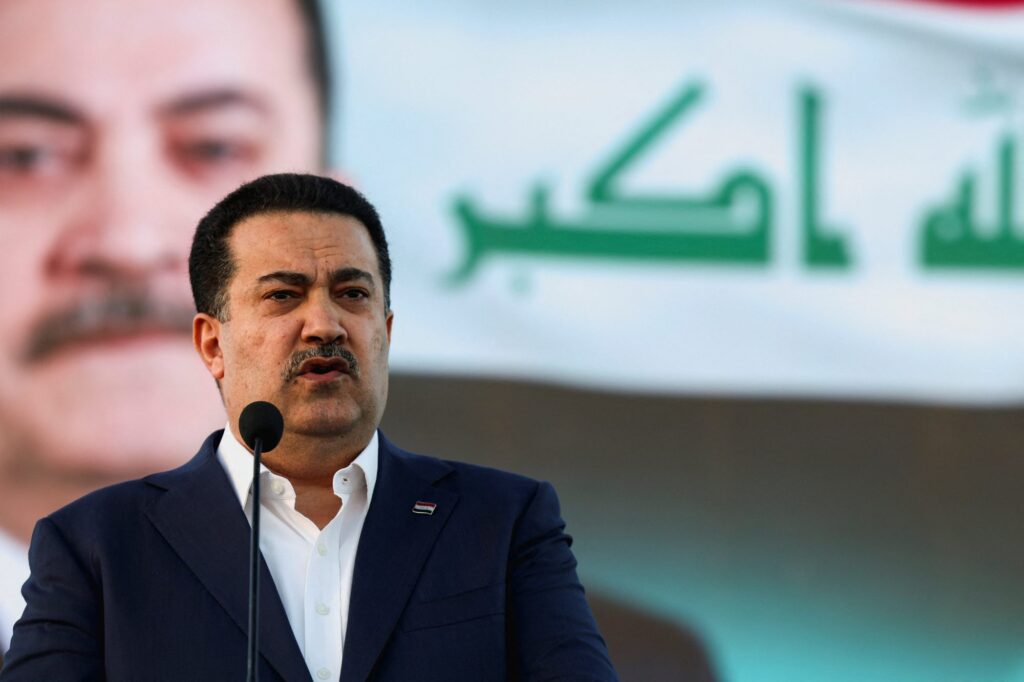🔴 Website 👉 https://u-s-news.com/
Telegram 👉 https://t.me/usnewscom_channel
For decades, security concerns shaped relations between Iraq and the United States almost exclusively.
Long wars, the fight against terrorism and heavy sacrifices on both sides left deep marks.
Yet Iraq today is no longer the country it was 20 years ago.
Our armed forces are stronger, our institutions more mature, and — thanks to cooperation with the United States and the international coalition — we are increasingly capable of defending our sovereignty.
The gradual reduction of coalition troops is not a retreat but a reflection of Iraq’s growing confidence and its willingness to shoulder responsibility.
This transition marks the beginning of a new era — one focused on prosperity rather than mere survival.
Iraq now seeks a partnership rooted in economic opportunity: We need investment, jobs and access to markets, while the United States brings leading expertise in technology, energy and agriculture, along with unmatched investment capacity.
By combining Iraq’s natural wealth with America’s innovation, both nations stand to benefit.
Recent agreements with companies like Chevron and General Electric are not just contracts on paper; they represent real jobs, stronger infrastructure and a more stable Middle East.
Iraq is a young nation: 40% of our citizens are under age 15.
This demographic reality can be either a powerful engine for growth — or a breeding ground for despair.
If we provide education and employment, our youth will drive Iraq forward; if we fail, we risk exposing them to extremism.
That is why Iraq does not seek aid but investment — partnerships that generate sustainable opportunity.
Security in Iraq no longer depends on permanent foreign deployments, but arises from jobs, justice and sovereignty. Extremism thrives where young people lack hope.
To confront this, Iraq is securing its borders, cutting off terrorist financing and ensuring that weapons remain under state authority.
These measures not only protect Iraqis but also reinforce Iraq’s role as a reliable partner in global security.
We have also chosen to act as a bridge for dialogue rather than a battlefield for conflict.
Iraq is engaging with its neighbors to ease tensions and prevent regional crises that could once again draw in outside powers.
This reflects our vision of sovereignty: Iraq as a stabilizer, a convener, and a contributor to peace.
In this effort, the United States remains an essential partner — through diplomacy and continued support for Iraq’s stability.
Iraq has chosen the path of integration and constructive dialogue grounded in fair and mutual interests, seeking stability and shared prosperity.
Our relations with the United States are built on mutual respect and the principle of non-interference in internal affairs.
Guided by these values, Iraq pursues a policy of constructive engagement with its regional neighbors and the international community alike.
Iraq is a fully sovereign state — independent in its decision-making and guided solely by its national interests. We maintain balanced and lawful relations with all nations.
While certain Iraqi factions hold ideological ties to Iran, we have ensured that their activities remain strictly within the bounds of state authority.
Externally, we seek partnership; internally, we seek reconciliation.
We are working to resolve issues with the Kurdistan Region and to strengthen trust among Iraq’s diverse communities by promoting a shared national identity, because a stable domestic foundation is the prerequisite for successful international partnerships.
The measure of US-Iraq relations should no longer be the number of American soldiers on our soil, but by joint projects, trade and opportunities created for both peoples.
A relationship once defined by war must now be redefined by prosperity.
We seek cooperation, not conflict.
We prefer our steel to be used to produce goods, not weapons.
An American embrace of Iraq as an investment and trading partner will give our neighbors tangible proof that peace is a better alternative than war.
What Iraq envisions is a fair, balanced and mutually beneficial partnership: One in which Iraq assumes full responsibility for its security while the United States engages as an investor, economic partner and ally.
This is not a plea for charity, nor a call for permanent military presence.
It is an invitation to build a win–win relationship that turns the lessons of the past into the foundations of a better future.
America has long been a leader in innovation and opportunity. Iraq is ready to match that leadership with its resources, its youth and its determination.
Together, we can redefine the US-Iraq relationship — not as another chapter in endless conflict, but as a story of prosperity built side by side.
Mohammed Shia al-Sudani is the prime minister of Iraq.
